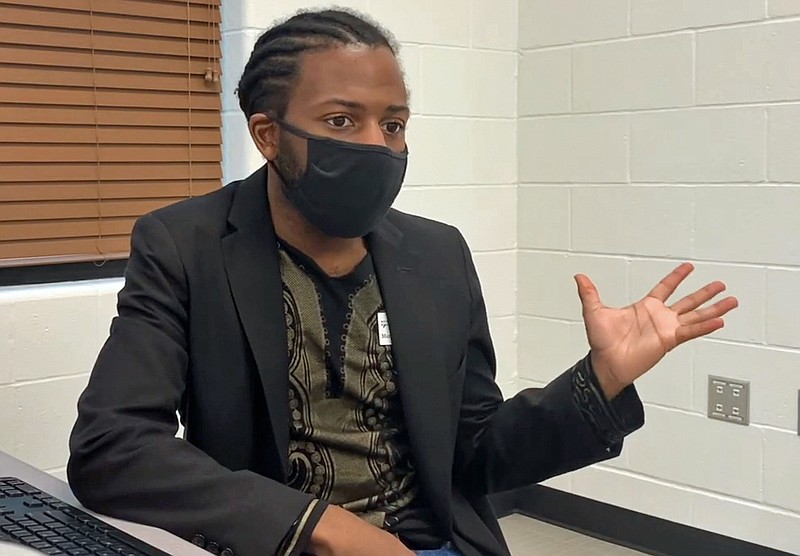The local chapter of the National Association for the Advancement of Colored People is working to ensure access to COVID-19 vaccines for the Black community while bridging the gap of mistrust brought about by past unethical medical practices.
Marsalis Weatherspoon, chapter president, said the two issues stand in the way of getting shots in Black and brown arms.
Historical events have created a rift between the Black and medical communities, according to Weatherspoon.
"Historically, with our community, there has been vaccine hesitance, or a mistrust of the medical community because of how our community has been victims of experimentation and things like that," Weatherspoon said, citing the infamous Tuskegee Study.
According to the Centers for Disease Control and Prevention's website, from 1932-1972, the U.S. Public Health Service conducted a study of the effects of untreated syphilis in Black men in Macon County, Alabama.
Video not playing? Click here https://www.youtube.com/embed/UKz8Zlt5rFg
The study became unethical in the 1940s "when penicillin became the recommended drug for treatment of syphilis and researchers did not offer it to the subjects," the website says.
The Tuskegee Study, which treated Black people as mere experiments, created a hesitancy that has lasted into the present day.
"What I would say is I get it," Weatherspoon said. "I get the apprehension that people have and I understand and I think it's valid because of the horrors -- the atrocities -- that were inflicted on our people. But what I would say is this time is different."
He said Black people have been "at the table" in the COVID-19 vaccine research and implementation, whereas before they were "on the menu."
"Black people have been in the driver's seat, so to speak," Weatherspoon said. "Whether it's Pfizer, Moderna or all of these other companies; they made a conservative effort to include us in the process. ... So we can trust us to have our best interest at heart."
Second, while "all of that is true and contextualizes where we are now," Weatherspoon said there is a larger concern at play with the local Black community receiving the vaccine, and that is lack of access to it.
"We're disproportionately unable to get access to the vaccine in Black and brown communities," he said, "and that's for a number of reasons. Number one, being the digital divide and how we don't have access to technology and access to register for the vaccine like our counterparts."
Weatherspoon said the pandemic has underscored the preexisting inequities between Black and white communities.
"I remember when we first started the virtual learning experience," he said. "The first thing they had to do was get the internet access to our community because we didn't have internet access on par with our white counterparts.
"So it's a race thing, but it's also a poverty thing. Like we just don't have the same access to technology, especially when you're talking about our elderly population who need the vaccine the most. They don't have that technology, they may not even have a computer, let alone internet access. So from the outset we're at a disadvantage when it comes to technology and internet access and things of that nature."
Internet access has been a key factor in getting on the waitlist to receive a COVID-19 vaccine and another obstacle has been having transportation to get to the clinics.
"I heard there was some type of vaccine rollout at the fairgrounds," Weatherspoon said. "That's way too far for our people. We live in the city center. We live around here on Malvern, Grand, so because of lack of transportation it's hard to get that far."
He noted that having the mindset of assuming people have internet access or a means of transportation comes from a place of privilege -- a mindset of always having had those things, and not thinking some have to do without.
"What I would want the community to know is that the NAACP has been at the forefront of awareness, we've been at the forefront of coordination," Weatherspoon said, and their efforts have paid off.
The NAACP has been involved in one vaccine clinic held at Oaklawn Methodist Church on March 9 and will be involved with a clinic held at the Hot Springs Convention Center on March 25.
Additionally, to reduce the need for internet access in signing up for the COVID-19 vaccine, the state has set up a toll-free number for vaccination information at 800-985-6030.
Call representatives will schedule appointments for Department of Health vaccine clinics and will provide information about pharmacies and providers in the caller's area that offer vaccinations.
